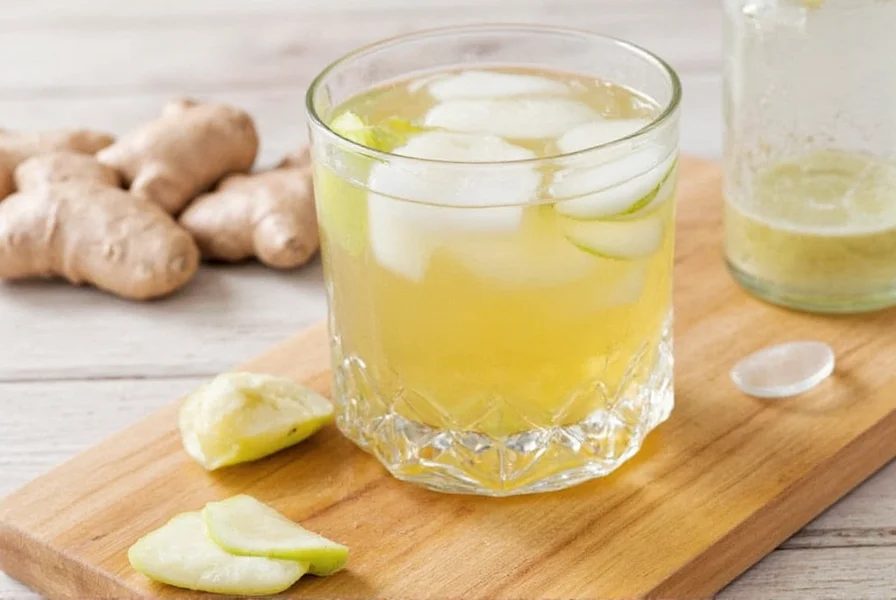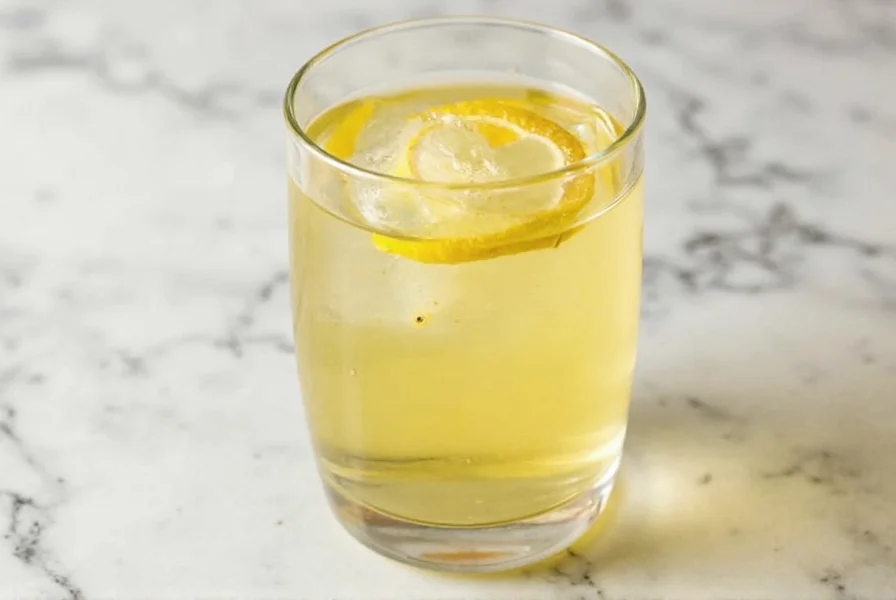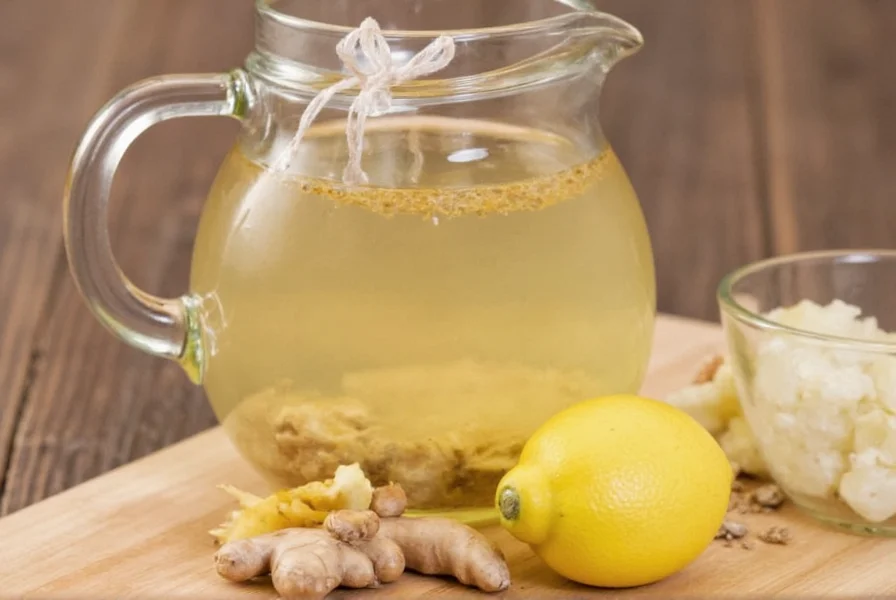Ginger water is a popular herbal infusion enjoyed worldwide for its distinctive flavor and potential wellness benefits. Unlike complicated recipes requiring special equipment, this simple preparation method uses minimal ingredients while maximizing ginger's natural properties. Whether you're looking for a caffeine-free alternative to morning coffee or a soothing evening drink, homemade ginger water offers versatility without added sugars or artificial ingredients.
Why Ginger Water Deserves a Place in Your Routine
While not a miracle cure, ginger water provides a flavorful way to stay hydrated while potentially supporting digestion and providing antioxidants. The active compounds in ginger, particularly gingerols, contribute to its characteristic spicy flavor and may offer certain health benefits when consumed as part of a balanced diet. Many people find ginger water particularly soothing after meals or during seasonal changes.
Essential Ingredients for Perfect Ginger Water
Creating authentic ginger water requires just a few simple ingredients:
| Ingredient | Amount | Notes |
|---|---|---|
| Fresh ginger root | 1-2 inches | Choose firm, smooth-skinned ginger with no soft spots |
| Filtered water | 4 cups | Spring or filtered water yields best flavor |
| Lemon (optional) | 1/2, sliced | Adds brightness and vitamin C |
| Honey (optional) | To taste | Only add after cooling to preserve beneficial properties |
Step-by-Step Guide to Making Ginger Water
Follow these straightforward steps for perfect ginger water every time:
- Prepare the ginger: Wash 1-2 inches of fresh ginger root thoroughly under cool water. Peel using a spoon (which follows the contour better than a peeler) or leave the skin on for additional nutrients if organic.
- Slice or grate: Thinly slice the ginger for a milder flavor or coarsely grate for stronger infusion. Slicing preserves more of ginger's natural compounds compared to grating.
- Boil water: Bring 4 cups of filtered water to a rolling boil in a stainless steel or glass pot (avoid aluminum which can react with ginger).
- Add ginger: Remove water from heat and immediately add prepared ginger. For stronger flavor, add ginger to cold water and bring to a boil together.
- Steep properly: Cover and let steep for 5-10 minutes for mild flavor, 15-20 minutes for medium strength, or up to 30 minutes for robust ginger water. Longer steeping extracts more compounds but may become overly spicy.
- Strain and serve: Pour through a fine mesh strainer into a heat-safe container. Add lemon slices or a touch of honey if desired, but enjoy it plain first to appreciate ginger's natural flavor.

Three Delicious Ginger Water Variations
Once you've mastered the basic preparation, try these simple variations:
- Citrus Boost: Add 3-4 thin lemon or orange slices during the last 5 minutes of steeping for a refreshing citrus-ginger blend
- Cold Brew Method: For a smoother, less spicy version, combine sliced ginger with cold water and refrigerate for 12-24 hours before straining
- Spiced Ginger Water: Add one cinnamon stick or 2-3 whole cloves during steeping for warm, complex flavor
Proper Storage for Maximum Freshness
Ginger water maintains its best flavor when consumed fresh, but you can store it properly for later use:
- Refrigerate in a sealed glass container for up to 3 days
- Avoid plastic containers which may absorb ginger's strong flavor
- For longer storage, freeze in ice cube trays then transfer to freezer bags for up to 3 months
- Always reheat gently without boiling to preserve flavor compounds
Common Ginger Water Mistakes to Avoid
Even simple recipes can go wrong. Steer clear of these common pitfalls when making ginger water:
- Using old ginger: Stale ginger produces weak flavor. Look for firm roots with smooth skin and no soft spots
- Over-boiling: Extended boiling (beyond 20 minutes) can make ginger water bitter rather than pleasantly spicy
- Adding honey while hot: High temperatures destroy honey's beneficial enzymes—always add after cooling to below 110°F (43°C)
- Using tap water with strong chlorine: Chlorine affects ginger's delicate flavor profile—filtered water yields superior results

Understanding Ginger Water Benefits Realistically
While many wellness websites make extravagant claims about ginger water, the reality is more nuanced. Scientific research suggests ginger may support digestion and provide antioxidants, but ginger water alone won't produce dramatic health transformations. Think of it as a flavorful hydration option that may offer modest benefits when consumed regularly as part of a balanced lifestyle. The real value lies in replacing sugary beverages with this zero-calorie alternative that satisfies with its natural spiciness.











 浙公网安备
33010002000092号
浙公网安备
33010002000092号 浙B2-20120091-4
浙B2-20120091-4